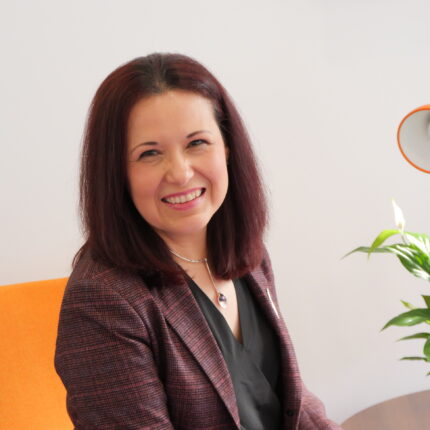In the ongoing debate over the value of different academic disciplines, it is essential to recognise that they are not mutually exclusive but rather complementary – and there is real value in their integration.
In higher education we often bemoan a school system that requires early specialisation, but with a few exceptions we then replicate this even more stringently at university level.
Of course, many disciplines are required by PSRBs to follow a strict curriculum, but in most cases, this is about content, not pedagogy.
And in those areas where the curriculum can be freely set by a course team, there is a disciplinary conservatism that often leads to insistence that the entirety of an undergraduate course must be devoted to that field of study (even if specialist perspectives are covered).
Getting connected
As educators, we believe that fostering an interconnected pedagogy can support truly imaginative learning and, consequently, better prepare graduates for a complex and unpredictable future (for instance, what in heaven’s name are we to do about AI?).
In the face of government scepticism about the value of certain degrees, and their conviction that some are inherently superior to others, we would argue that the world needs graduates whose imaginations and intellects have been stimulated towards creative problem-solving and solution-finding.
In the past, we have explored these ideas through a pedagogy that that combines the analytical approach required by Engineering with the critical thinking, creativity, and empathy fostered by the Humanities.
Of course, neither analysis nor creativity are the preserve of either discipline – but the siloes commonly set up within university structures can intimate that they are.
We offer the following as an example of how integrating pedagogical practice enhances students’ experience, as well as the learning experience of their teachers.
Embracing interconnectedness
The modern world is increasingly characterised by complex problems that require multidimensional solutions. Whether it be devising sustainable urban planning strategies, addressing ethical dilemmas in artificial intelligence, or crafting policies to promote social justice, collaboration between humanities and engineering becomes indispensable.
The integration of the pedagogies of these disciplines cultivates a holistic approach that considers not only the technical aspects but also the human impact and ethical considerations. Graduates with such interdisciplinary knowledge possess a unique advantage, equipped to navigate the complexities of the real world.
Humanities-enhanced Engineering
Humanities disciplines instil critical thinking, deductive as well as inductive reasoning, creative problem-solving, and ethical investigation. These approaches are vital for engineers who must grapple with the social, cultural, and ethical implications of their work.
Engineers who are well-versed in humanities-inflected skills are better equipped to understand the broader context in which their innovations operate, ensuring that their creations align with societal needs and values. Integrating humanities into engineering curricula promotes empathy, ethical decision-making, and effective communication skills, enabling engineers to collaborate with diverse teams and stakeholders.
Engineering-empowered Humanities
Likewise, engineering-style thinking brings a unique perspective to humanities. The technical and analytical skills acquired through engineering education can provide humanities students with precision tools as they analyse and address complex expressions of social, ethical, and textual ideas.
The integration of engineering concepts and methodologies strengthens the empirical foundation of research in humanities disciplines. For instance, computational analysis has enhanced literary studies by revealing patterns and trends within texts, offering new insights into literature and culture.
Fostering innovation and entrepreneurship
An integrated pedagogy that bridges the gap between humanities and engineering fosters a highly creative and future-facing innovation and entrepreneurship. By encouraging students to think beyond disciplinary boundaries, we enable them to identify novel solutions to societal challenges.
This interdisciplinary approach nurtures the novel solutions our world needs, enabling students to draw inspiration from multiple sources and not only think outside the box, but design new ones with humanity and efficacy as key design principles. Innovations that emerge from the cross-pollination of humanities and engineering have the potential to revolutionise industries, drive economic growth, and improve the well-being of individuals and communities.
Preparing for the future
In an era of rapid technological advancements and automation, the ability to flex, adapt and be prepared for continual learning will be crucial. An interconnected pedagogy that combines humanities and engineering equips students with valuable transferable skills that will remain relevant throughout their careers.
By embracing a multidisciplinary approach, educational institutions can produce graduates who are innovative, resilient, and capable of navigating the ever-evolving job market. This integration not only prepares students for the challenges of the future but also creates well-rounded individuals who can contribute meaningfully to society.
Perspective taking
We have focused on pedagogy because we feel that the best education is as much about how we approach teaching and learning as it is about subject expertise. It’s not always possible to integrate subject matter, but highly possible to teach subject matter from integrated perspectives.
Elena’s engineering students may not have expected a guest spot from Jackie that began with references to Alice in Wonderland, but this opened an exploration of how making meaning aligns to making effective structures.
This can be seen, not surprisingly, in emerging higher education institutions in the UK such as NMITE, TEDI and LIS – newly founded institutions that took the opportunity that started from scratch offered them, to integrate technical and humanities subjects, giving their students uniquely valuable learning experiences.
The ongoing narrative about the value of degrees should not pitch disciplines against each other. A fundamental responsibility of educators is to foster holistic teaching and learning that equips students with the skills needed to tackle complex challenges with empathy, critical thinking, technical expertise, and creativity to build a better world. The time for genuine integration is now.














Fully support this. I became very aware that silo mentalities were hindering the development of entrepreneurial education when I worked with QAA and AdVanceHE. I used to do a quiz that asked ‘what subject benchmark statement is this? It was amazing what disparate responses I got!!! Lots of room to join these kinds of dots 🙂